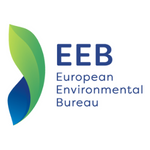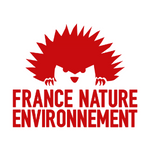EUKI Project
The European Climate Initiative
Nov 2017 / Feb 2020
Reducing emissions from the agricultural sector: An unavoidable action after the Paris Agreement
Climate change represents one of the greatest environmental challenges facing humanity today. Increasing intensity of droughts, heat waves and floods, as well as accelerating water stress, changing precipitation patterns, and temperature variability, severely impact the agricultural sector. However, the agricultural sector is not only a victim of climate change, but also contributes to it through its greenhouse gas (GHG) emissions.
In the EU, food production accounts for at least 15% of net GHG emissions, not to mention significant emissions from imported livestock feed and other inputs.
Limiting global warming to 1.5 degrees will only be possible if the agricultural sector also plays its part and significantly reduces its emissions. There are several ways to do this, including:
- Reducing the number of animals on European farms.
- Promote EU-wide adoption of agro-ecological farming practices.
- Apply best practices in nutrient management.
- Protecting and managing permanent grasslands, climate and biodiversity.
- Ensure the conservation and finance the restoration of wetlands, peatlands and forests.
- Help farmers and livestock keepers adapt to a changing climate by building a resilient and diversified agricultural sector.
Public policies and subsidies must drive the just transition to carbon-neutral agriculture and livestock. A strong knowledge base, knowledge sharing and inclusive dialogue of all stakeholders is also needed to create a forward-looking agricultural sector that contributes meaningfully to the EU’s climate mitigation efforts.
OBJECTIVES
To assess the extent to which policy is currently driving climate action in the agricultural sector and to advocate for further action, the European Environmental Bureau (EEB) and BirdLife Europe are coordinating the project "Reducing emissions from the agricultural sector: an unavoidable action after the Paris Agreement", which is part of the European Climate Initiative (EUKI). EUKI is a project funding instrument of the German Federal Ministry for the Environment (BMU), whose overall objective is to promote climate cooperation within the European Union to mitigate greenhouse gas emissions.
In addition to the two coordinating organisations, the project involves other implementing organisations in different Member States: BirdWatch Ireland (Ireland), France Nature Environnement (France), Germanwatch (Germany), CEEweb (Hungary) and IIDMA (Spain).
Its main objectives include:
Knowledge
To increase knowledge among all stakeholders about the mitigation potential of the agricultural sector in relation to climate change and the environmental and socio-economic co-benefits associated with the implementation of mitigation measures.
Partnerships
Create new networks of alliances between all stakeholders and ensure the achievement of a real social and political will for an ambitious legislative framework on climate and agriculture.
The project in Spain
Workshop on the options for the agricultural sector to combat climate change.
Different specialists and professionals from the sector presented and discussed the most appropriate measures for climate change mitigation and the obstacles to put them into practice.
Workshop held at the headquarters of the European Commission Representation in Madrid to present different data and conclusions of the European EUKI Project.
During the event IIDMA presented the report "Cutting Emissions from Farming", carried out by CE Delft.
Documents
Organisers


Partners





Donor: GIZ (German Corporation for International Cooperation)
Funding: 350.000€
Countries: France, Germany, Ireland, Spain and Hungary.
Supported by: German Federal Ministry for the Environment, Nature Conservation and Nuclear Safety (BMU)

